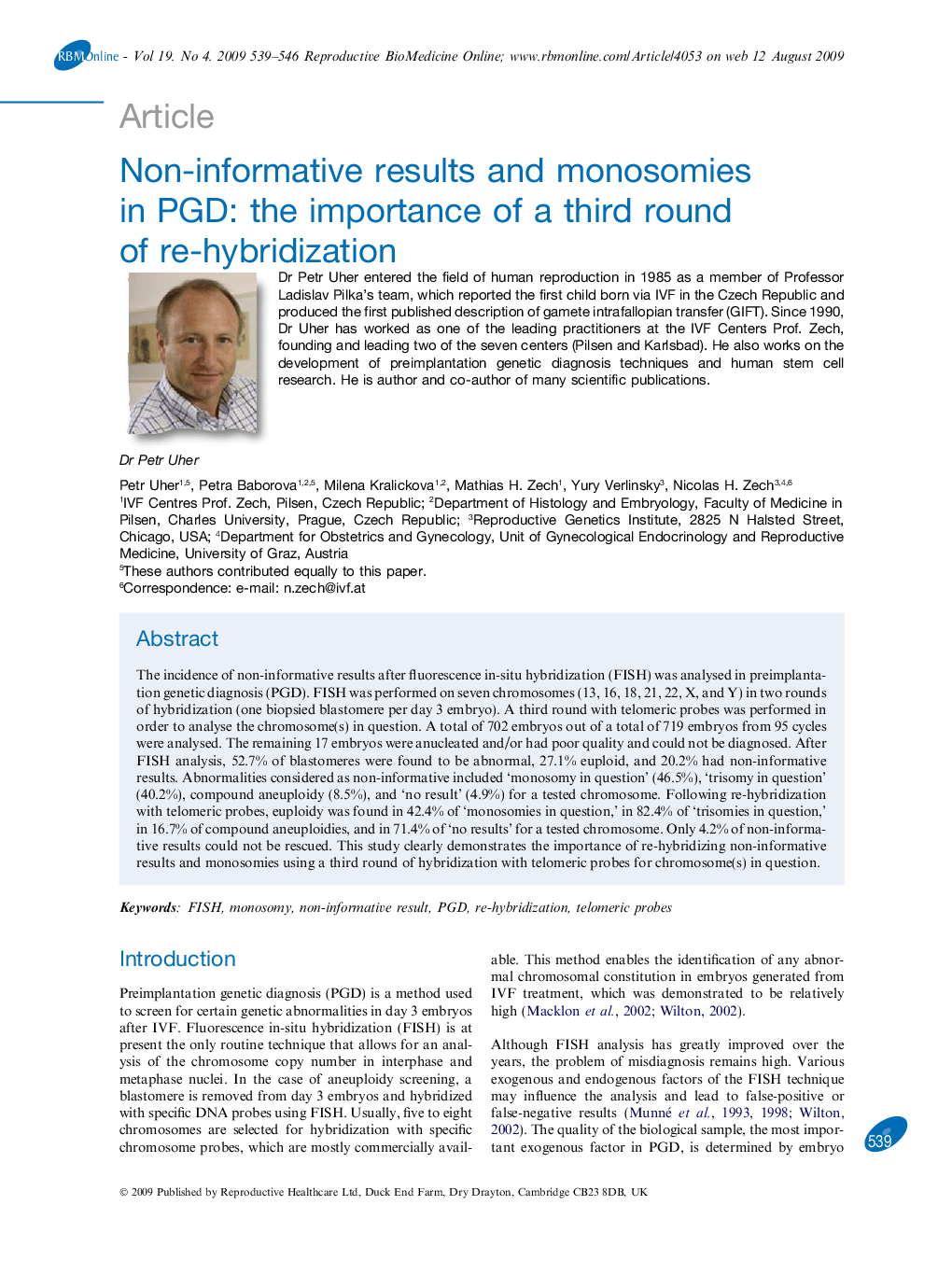| کد مقاله | کد نشریه | سال انتشار | مقاله انگلیسی | نسخه تمام متن |
|---|---|---|---|---|
| 3972179 | 1256794 | 2009 | 8 صفحه PDF | دانلود رایگان |

The incidence of non-informative results after fluorescence in-situ hybridization (FISH) was analysed in preimplantation genetic diagnosis (PGD). FISH was performed on seven chromosomes (13, 16, 18, 21, 22, X, and Y) in two rounds of hybridization (one biopsied blastomere per day 3 embryo). A third round with telomeric probes was performed in order to analyse the chromosome(s) in question. A total of 702 embryos out of a total of 719 embryos from 95 cycles were analysed. The remaining 17 embryos were anucleated and/or had poor quality and could not be diagnosed. After FISH analysis, 52.7% of blastomeres were found to be abnormal, 27.1% euploid, and 20.2% had non-informative results. Abnormalities considered as non-informative included ‘monosomy in question’ (46.5%), ‘trisomy in question’ (40.2%), compound aneuploidy (8.5%), and ‘no result’ (4.9%) for a tested chromosome. Following re-hybridization with telomeric probes, euploidy was found in 42.4% of ‘monosomies in question,’ in 82.4% of ‘trisomies in question,’ in 16.7% of compound aneuploidies, and in 71.4% of ‘no results’ for a tested chromosome. Only 4.2% of non-informative results could not be rescued. This study clearly demonstrates the importance of re-hybridizing non-informative results and monosomies using a third round of hybridization with telomeric probes for chromosome(s) in question.
Journal: Reproductive BioMedicine Online - Volume 19, Issue 4, October 2009, Pages 539–546